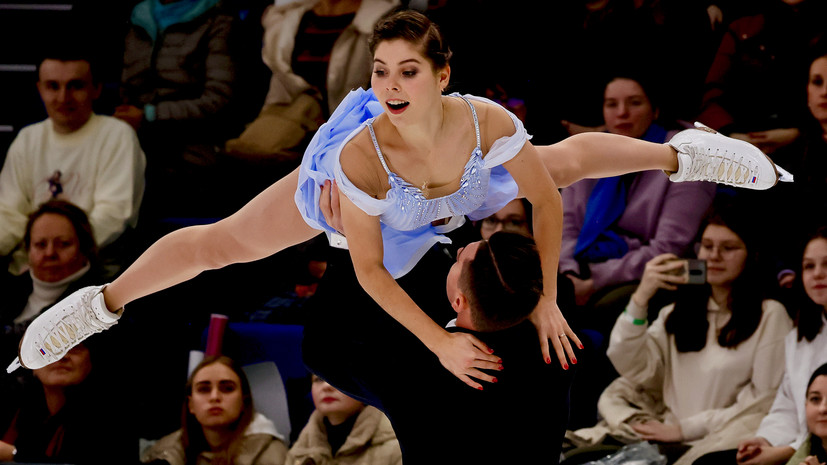In Soviet times, there were competitions in figure skating that could be called the prototype of the current jumping tournament.
It was the so-called special program championship, which, among other things, included competitions in the elements.
Jumping - including.
True, all this was carried out not for adult skaters, but for children and juniors.
For adults, experienced and well-trained athletes, a jumping tournament is primarily entertainment, a weekend format, an opportunity to move away from the usual training regimen.
And certainly such tournaments are invaluable for those skaters whose nervous system is not too stable and does not always withstand the stress of large starts: there is no need to perform all difficult jumps in one program, before each attempt you can warm up well, tune in, that is, go to the start in much more comfortable than usual.
In a sense, the jumping tournament can compensate the audience for everything that the Russian Grand Prix series failed to give: namely, really tough sports fights.
Whether it is necessary to arrange such battles three weeks before the Russian championship is a separate issue.
But irreconcilable competition is inherent in the plot from the very beginning.
I'm talking about the opposition of coaches.
Nine months ago, at the First Channel Cup in Saransk, the jumping festival with the participation of the red and blue teams turned out to be not very impressive.
The plot of the St. Petersburg tournament is much more acute.
For the second season now, Tutberidze and Plushenko have been squabbling among themselves on the topic of whose skaters are cooler.
After last season, first Alexander Trusov and then Alyona Kostornaya returned from Evgeny to the group of the former coach, and three athletes representing Khrustalny went to the Olympic Games and brought gold (Anna Shcherbakova) and silver (Alexandra Trusova) from the Games, The answer to this question seemed to be obvious.
Now the situation has changed.
Shcherbakova stopped performing and is recovering after the operation, Kamila Valieva grew up and lost her condition in order, Adelia Petrosyan, who has the most difficult jumping content, was injured and it is not yet clear how well she managed to recover from it, Sofia Akatieva was also not in the best shape, judging by the second Moscow stage of the Grand Prix series.
Evgeny's group also has enough problems, but his crew looks more powerful at the moment.
The same Sofia Muravyova has already taken shape after an injury that happened in early autumn, restored the triple axel and is preparing a quadruple salchow for public display, Veronika Zhilina, with an arsenal of two different quads and a triple axel, won both stages of the junior series.
It is not yet known which skaters from other groups will join Plushenko's team (there should be six single skaters in total), but there may be quite a lot of athletes who are eager to prove themselves.
The last of the Grand Prix stages pretty much added oil to the fire of the upcoming competition: Muravyova won the short program against ex-world champion Elizaveta Tuktamysheva and thus marked the beginning of Plushenko's coaching confrontation with her former mentor Alexei Mishin.
The rivalry between the two athletes in the free program turned out to be not that scandalous, but ambiguous for sure: Liza won the tournament with a microscopic advantage thanks to the second mark.
Such victories are always perceived by the fans with some doubt, and, apparently, not only by them.
In any case, Plushenko himself said that he considers Sonya the true winner of those competitions.
The point here is not at all which of the skaters is cooler.
It is impossible not to notice that Evgeny has reached such a level of coaching skill that it becomes impossible to disregard him.
Knowing the nature of the two-time Olympic champion and the degree of his inner ambition, you can safely bet on the fact that the skaters of the Plushenko team will fight seriously.
And no matter how playful and conventional the sporting nature of the upcoming jumping show will be.
What could be cooler than beating your own legendary mentor at your own rink, where you yourself once grew into an outstanding skater?
A separate story in the championship is the competition of sports couples, where for the first time the audience has a chance to see all the strongest in one competitive format: European champions-2020 Alexander Boikova - Dmitry Kozlovsky, world champions-2021 Anastasia Mishina - Alexander Gallyamov and silver medalists of the Games-2022 Evgenia Tarasova — Vladimir Morozov.
At the end of the last season, the duets in the hierarchy lined up in reverse order - from the last to the first.
This season has shown that both pairs of Tamara Moskvina (two victories each in the Russian Grand Prix) are equally strong and, it seems, not too accessible.
But when it comes to ultra-c, everything can change at any moment and in any direction.
It is possible, by the way, that it is in St. Petersburg, where couples are ordered to perform a twist, jump and throw, for the first time there will be presented elements that skaters carefully learn, but so far do not risk inserting into competitive programs - the same four turns.
It remains only to see how successfully it will be possible to pack all this into a show format.

